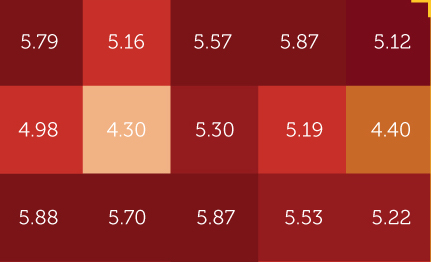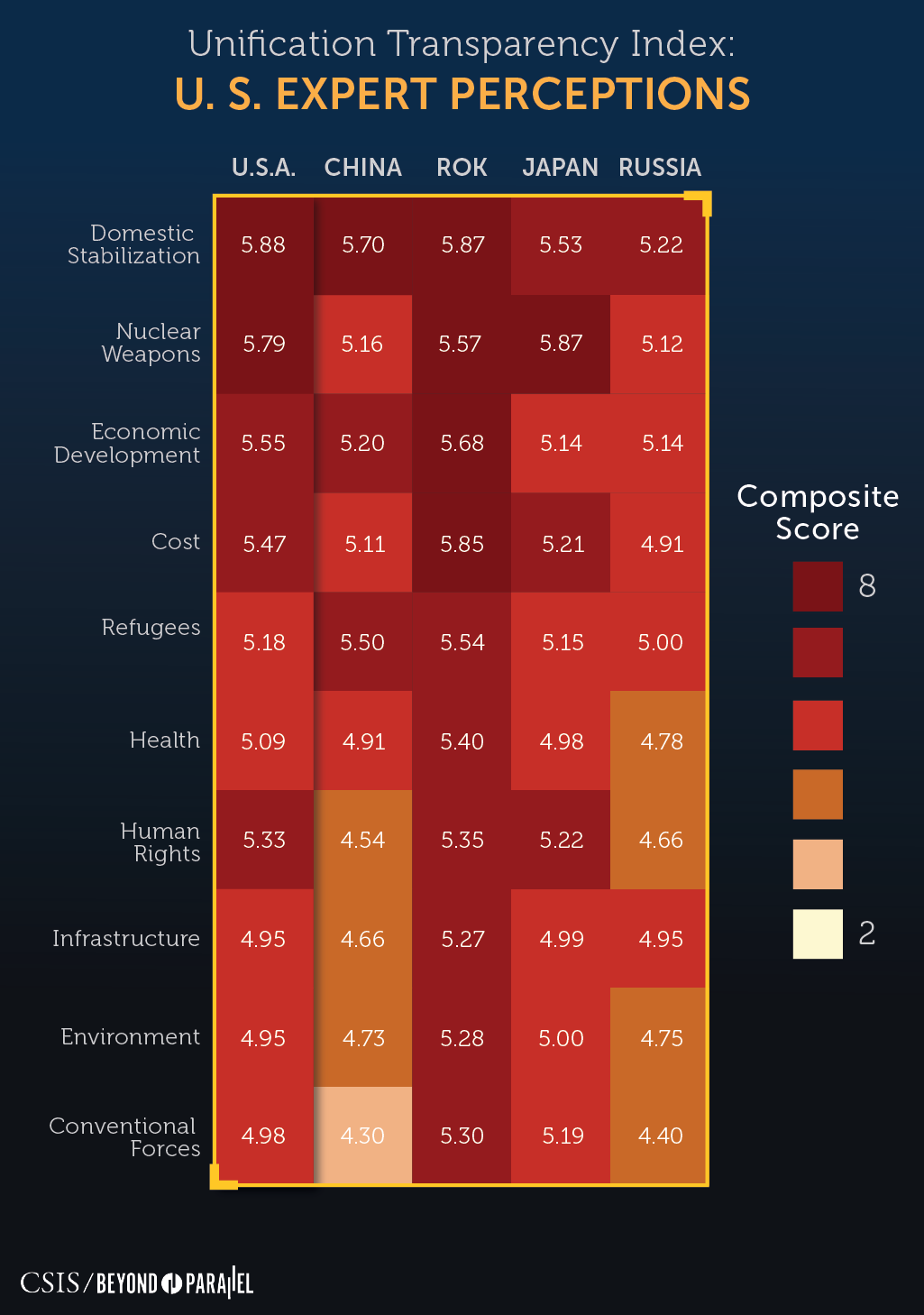
Unification Transparency Index: United States
How Much Do We Know About Unification?
Beyond Parallel is creating the first-ever database of expert assessments that try to quantify how much we know about unification. While it has become commonplace to say that there are many “unknowns” and “dangers” associated with Korean unification, these variables have never been measured and remain cloaked in opacity. How much do the United States, South Korea, China and other regional powers actually know about the long-term issues associated with Korean unification? How strongly do countries in the region perceive such issues to be important to their own national interests?
Beyond Parallel believes misperceptions of national interests and a lack of empirical knowledge on Korean unification issues impedes smart planning and could instead lead to costly strategic blunders. To begin quantifying these variables, Beyond Parallel conducted a breakthrough pilot survey study of 233 of the United States’ top Asia/Korea experts, government officials, scholars, and opinion leaders with a response rate of 47%.1 The results of the study are baseline numbers and quantitative markers that will serve as guideposts for future study and planning for Korean Unification. In subsequent surveys, the data will be expanded to Chinese, South Korean, Japanese, and Russian experts.
The Index examines the practical issues and opportunities that will arise irrespective of the specific scenario that unites the peninsula.
Beyond Parallel selected ten issues that are intrinsic to long-term unification planning rather than the short-term specifics of any particular unification scenario. The Unification Transparency Index is an assessment of what issues manifest a high level of concern for countries’ national interests, but lack real empirical knowledge as perceived by U.S. experts. These areas, represented by the deepest shades of red, are in the most critical need of greater transparency and understanding.

How to Understand the Index?
In the Unification Transparency Index, transparency is defined as openness, communication, and accountability of knowledge and concern as related to Korean Unification issues. Blind spot scores are a composite measure based on two variables from the Beyond Parallel pilot survey of U.S. experts: concern and knowledge. The first variable assessed is the relative level of concern for a unification-related topic to the national interests of the U.S., Japan, South Korea (ROK), China, and Russia. The highest levels of concern were scored a 4 (vital to national interest) while the lowest levels of concern scored a 1 (no bearing at all to national interest). The second variable is the amount of knowledge, which is defined as empirical evidence, analysis, and scholarly literature each country has on the issues on which to base their policy decisions. Here the highest levels of knowledge were scored a 1 (abundant empirical evidence) while the lowest levels of knowledge were scored a 4 (no empirical evidence). The results from these two variables were averaged and then combined to produce a composite measure of blind spots for each country on the 10 selected unification issues. The higher the score, the deeper the shade of red, and larger the blind spot for the issue.
The largest blind spots are at the nexus of a complete lack of empirical evidence and yet are seen as vital to national interests.
The unification issues with the largest blind spots are those at the nexus of a complete lack of empirical evidence (4) and vital to national interests (4)—a recipe for potential disaster. On the other end of the spectrum, the smallest blind spots result from issues with no bearing on national interests (1), but with abundant empirical evidence (1). The initial findings from the Index will help set the research agenda as Beyond Parallel seeks to build greater knowledge and increase available empirical evidence in each of these critical issues.
This unique Beyond Parallel dataset will eventually be expanded to include—in addition to U.S. expert perception—survey results of experts, officials, scholars, and opinion leaders from all five countries in the Index to offer a comprehensive assessment of what we do and do not know about unification.2 
References
- Beyond Parallel received 110 responses for the initial pilot study conducted in Spring 2016. The survey respondents were pulled from a sample of U.S. experts, officials, scholars, and opinion leaders in the fields of Korea and East Asia. ↩
- The current Unification Transparency Index scores each issue for each country as perceived by U.S. experts. ↩
